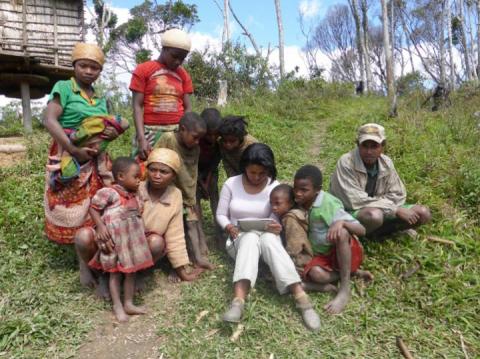In ireland 100 years ago, 1 percent of the island was forest, now it is 11 percent, and Irish people have no problem with food. They even grow Spruce, which is not native, to craft and sell furniture.
Given that developed countries have lots of forest now, despite going through periods of growth where they felled far more than they planted, it smacks of hypocrisy that wealthy nations tell poor ones how vital the rainforest is.
The arguments are all fine, the lemurs of Madagascar and all that, but tropical forests are also home to people whose lives are being held back by rich environmental groups like Greenpeace, whose lobbyists write international conservation policies. However, tropical forests are also home to many hundreds of thousands of people whose lives can be affected by international conservation policies. And then other remote bodies create international welfare schemes to compensate natives penalized by centralized bureaucracies.
Scholars from Bangor University in the UK and the University of Antananarivo in Madagascar looked at a new protected area and Reducing Emissions from Deforestation and Forest Degradation (REDD)+ pilot project in the eastern rainforests of Madagascar called the Coridor Ankeniheny Zahamena (or CAZ). This conservation project is conserving popular biodiversity (including the Indri-the largest lemur in the world), but a big part of the rationale for protecting the area is climate mitigation; locking up carbon to combat climate change.

Co-author Rina Mandimbiniaina entering data from an interview, looked on by a participating household. Credit: © S. Rakotonarivo
In their paper, they show that the new conservation restrictions bring very significant costs to local people (representing up to 85% of local annual incomes). Compensation, in the form of help with improved agriculture, was offered to a small subset of people but none were fully compensated.
Using in-depth interviews with a sample of 603 people from several communities over a period of more than 2 years, the researchers estimate that 27,000 people have been negatively impacted by the conservation project. These are people who are extremely poor by any measure, they clear land for agriculture because they are most food insecure. With centralized policies created by environmental groups, they can't even have the dignity of growing food to feed their family.
Worse, local people suffer from conservation enforcement., they are arrested and held in deplorable conditions for cultivating on forest fallow which they consider ancestral land. In a country where jail conditions are inhumane, this shows how desperate people are.
What about supposed compensation for not being able to work?
The compensation offered was in the form of agricultural development support. Good luck feeding your children with that. Few people received it and those who did receive it tended not to be the most in need,. The value of the support was very low when compared to the costs of conservation.
Professor Julia Jones, one of the researchers, suggests that proper, effective compensation should be affordable. "While our results show that policies which promise to compensate communities for the cost of conservation are not being met, this is not a case of corruption. Money has not gone missing. The truth is that the world is not currently paying enough to ensure that poor local people are properly compensated. We show that if rich countries were willing to pay the full social cost of carbon, proper compensation could be affordable."





Comments